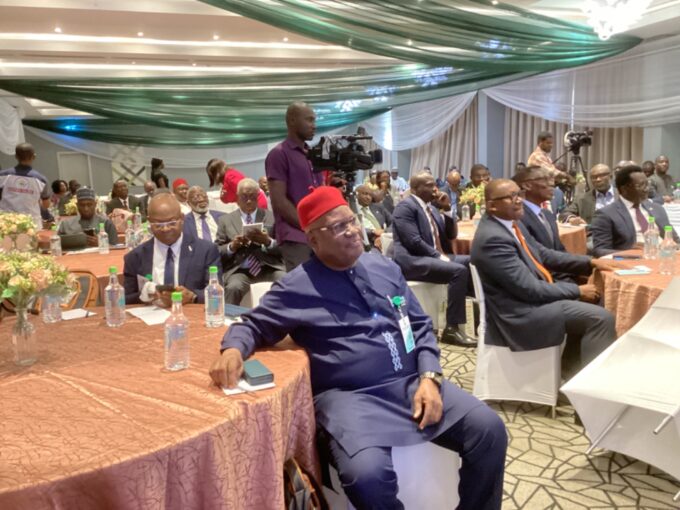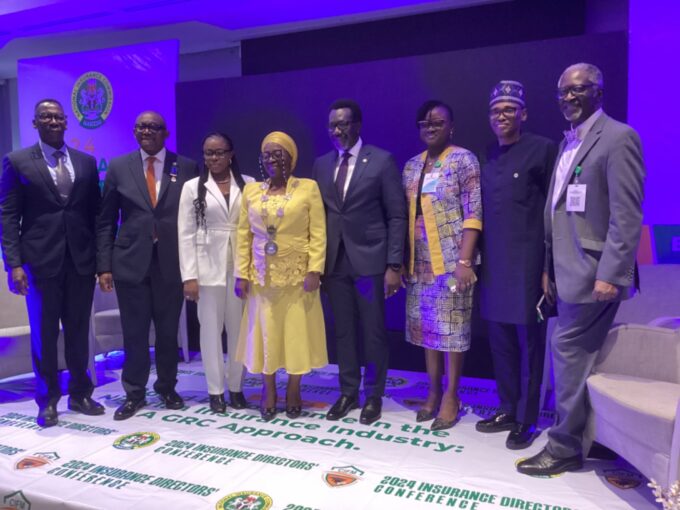Prisca Soares, Secetary General, AIO
BY NKECHI NAECHE (ACCRA, GHANA)—-The African Insurance Organisation (AIO) on Monday said that African Insurance industry currently accounts for insurance premiums of US$ 60.7 billion, which in US$ terms represents a decline over the previous year.
The organization disclosed this during the 3rd Africa Insurance Barometer, launched today on the sideline of 45th Conference & General Assembly of the African Insurance Organisation (AIO) in Accra, Ghana, in local currency premium volume has not declined since 2011.
It added that the continent’ insurers are slightly more enthusiastic about the current state and outlook for their industry than in the preceding two editions.
The insurance executives polled for this year’s survey expect that the gradual recovery of the continent’s economy from its deep recession but in 2015 and 2016 will positively impact on insurers’ rates and earnings and ease the pressure from excess capacity and fierce competition.
“This year’s Africa Insurance Barometer demonstrates that confidence is returning to Africa’s insurance markets,” says Prisca Soares, the Secretary General of the African Insurance Organisation.
“According to the AIO members polled for this survey, policymakers and regulators pay greater attention to our sector while consumers have started to realise the benefits insurance offers in protecting their assets.
The report noting that the withths advent of new technologies and the ambition of our industry to create and deliver tailored products to clients, our relevance as a key sector for the prosperity and progress of Africa’s economies has greatly improved.” The underlying economic and societal fundamentals of Africa’s insurance markets remained largely unchanged to last year’s survey. Abundant natural resources, the young and growing societies, an expanding middle class and the advent of new technologies drive insurance demand. The recent economic recovery – though still fragile in some countries – adds further momentum to the continent’s insurance outlook. As elsewhere, however, insurance markets suffer from excess capacity and cut-throat competition. As rates are low, regulators aim to protect domestic insurers from foreign competition with higher barriers of entry. The continent’s low insurance penetration is one of the market’s largest opportunities. With the economic rebound, insurers increased their efforts to broaden their product offering and widen distribution. Technology provides new avenues for innovation, both in commercial and personal lines, and helps to bridge geographical distances, increases scale and thus improves efficiency.
Africa’s regulatory framework, though for the first time in this edition seen by a majority of interviewees as broadly adequate, features among market opportunities and threats as well.
The introduction or enactment of compulsory insurance schemes in some markets, as well as tighter capital and solvency requirements contribute to a consolidation and strengthening of the markets. However, insurers still wish that regulators would further promote insurance awareness and penetration. Inconsistencies in enforcement and in certain markets a tendency to overregulate and stall business initiatives count as weaknesses while the surge in protectionism seen in many markets remains a double edge sword to many insurers. Excessive competition has turned into another challenge uniform to Africa’s insurance markets. Many executives regard current market conduct as unethical or irresponsible with too many players “chasing the same cake”. Insurance rates and profitability seem to have bottomed out Africa’s commercial insurance rates appear to have levelled-out. A growing number of executives expect rate increases in the next 12 months, driven by stronger economic growth and the assumption that the regulator will intervene to maintain market safety where rates have deteriorated beyond reason. As in past surveys, the profitability of commercial lines still benefits from historically better pricing. In addition, recent claims experience has been low in some markets. Personal lines are considered to be more stable. Competitive pressure is less pronounced as brand loyalty is higher than among commercial clients. In motor there is some pricing pressure due to higher claims, but it is unlikely to move rates broadly. Profitability has improved slightly and is expected to benefit from economic growth and the potential interference of regulators. Africa’s insurance markets are expected to become more concentrated. With the introduction of tighter capital requirements, such as Risk Based Capital (RBC), larger players are better positioned than smaller players, which have less access to capital and are expected to be acquired or exit the market over time. However, interviewees no longer assume that non-African insurers will outgrow their African counterparts. Protectionism makes it costlier for non-African insurers to grow their footprint in Africa. As a result of low rates and rising costs, Africa’s insurance markets have become less attractive for foreign players. Several global insurers have reallocated their capacity elsewhere, while regional players have been eager to fill the gap. To increase insurance penetration, African insurers invest heavily in marketing to build awareness and overcome a lack of product understanding or low consumer confidence. In addition, insurers are keen to strengthen their talent and skill base to take advantage of new product and distribution opportunities. They broaden their offering to tap demand that emerges with the increase of disposable income and the deeper integration of the African economy into the global production chain. As new technology becomes available, barriers to market entry have come down. Wider distribution channels provide access to remote client segments that previously had been too costly or inefficient to approach.














